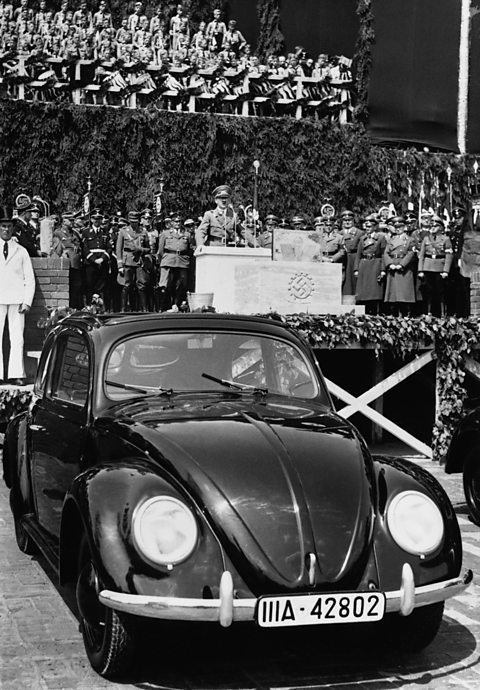Economic policies

Hitler opening a new Volkswagon factory
The Nazis tried to make Germany self-sufficient - that is to produce all the goods it needed without having to rely on imported supplies. They called this policy ÔÇśAutarkyÔÇÖ.
The Nazis implemented a major programme of public works, such as building and repairing roads, railways and houses.
This significantly helped reduce unemployment, as did large-scale military rearmament.
With Germany building up its armed forces, thousands of jobs in the iron, steel, aviation and shipbuilding industries were created.
The Nazis took control of workersÔÇÖ lives in a number of ways:
- The German Labour Front was established in 1933 and operated as a trade union for its members, although it was controlled by the Nazi Party. Striking was banned.
- The German Labour Service set up in 1935 made it compulsory for young men to be employed in public works schemes for six-month stints.
- The Strength Through Joy movement provided Nazi-approved leisure activities and holidays for loyal workers.